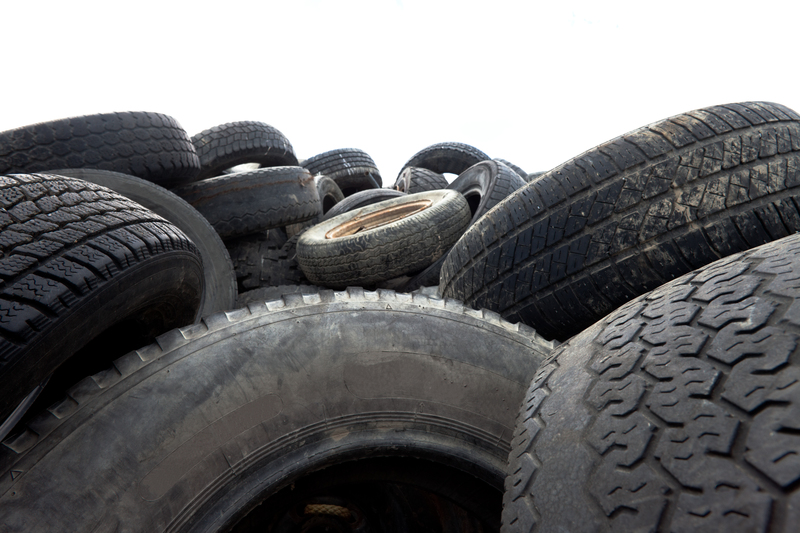These Urban Areas Are Battling Severe Air and Water Pollution
Posted on 15/06/2024
Air and water are essential resources for sustaining life on earth. However, with increasing urbanization and industrialization, many urban areas around the world are facing severe air and water pollution. This has not only detrimental effects on the environment and ecosystem but also poses a significant threat to human health. In this article, we will take a closer look at some of the urban areas that are struggling with severe air and water pollution, the reasons behind it, and the potential solutions.
The Battle Against Air Pollution
New Delhi, India
New Delhi, the capital of India, is constantly making headlines for its alarming levels of air pollution. The city is infamous for having some of the most polluted air in the world. According to a World Health Organization (WHO) report, New Delhi ranked as the most polluted capital city in 2019. The primary sources of pollution in Delhi include vehicular emissions, industrial activities, dust from construction sites, and crop burning in nearby states.
The high level of pollutants such as particulate matter (PM), nitrogen dioxide (NO2), and sulfur dioxide (SO2) in the air have severe adverse effects on human health. It can lead to various respiratory diseases, heart problems, and even premature deaths. To combat this severe issue, the Indian government has implemented measures such as banning diesel-powered vehicles over ten years old and introducing odd-even car rationing schemes. However, these efforts have shown limited success due to inadequate implementation and enforcement.
Beijing, China
Beijing has long been known for its dense smog-filled skies due to high levels of air pollution. Like New Delhi, Beijing struggles with high levels of PM and other pollutants emitted by industries and automobiles. The Chinese government has taken several steps to reduce pollution levels in Beijing, including shutting down coal-fired power plants and relocating heavy industries outside the city. Despite these efforts, Beijing still ranks among the most polluted cities in the world.

The Battle Against Water Pollution
Jakarta, Indonesia
Jakarta, the capital of Indonesia, is currently facing a water crisis due to severe pollution in its rivers. The city relies heavily on its rivers for daily activities such as drinking, bathing, and washing clothes. However, rampant industrialization and improper waste management have resulted in high levels of pollutants being discharged into these rivers. This has not only contaminated the water but also led to loss of marine life, affecting the livelihoods of those who depend on fishing.
The government has launched several projects to improve water quality in Jakarta, such as building wastewater treatment plants and relocating industries away from the riverbanks. However, it will take time for these initiatives to show significant results. In the meantime, residents are advised to boil their water before consumption to avoid health issues.
Pros and Cons
While governments and organizations continue to battle against air and water pollution in urban areas, there are pros and cons to each solution implemented.
Pros:
- Reduced carbon footprint: Measures such as implementing car rationing schemes and shutting down coal-fired power plants can help reduce emissions and carbon footprint.
- Improved public health: With cleaner air and water, there will be a decrease in respiratory diseases and other health issues caused by pollution.
- Economic benefits: A healthier environment can lead to increased economic opportunities such as eco-tourism.
Cons:
- Costly: Implementing solutions for air and water pollution can be expensive for governments.
- Limited success: Despite efforts to reduce pollution levels, some cities still struggle with high levels of pollutants due to inadequate implementation and enforcement.
- Inconvenience: Car rationing schemes or relocation of industries can cause inconvenience for residents and businesses.
Tips for Reducing Pollution
- Use public transportation or carpool to reduce vehicular emissions.
- Properly dispose of waste and avoid littering.
- Conserve energy by turning off lights and unplugging electronics when not in use.
- Support sustainable and eco-friendly businesses.

Takeaways
Urban areas are facing severe air and water pollution due to various sources, including industrialization, vehicular emissions, and improper waste management. Governments must take proactive measures to address these issues before they become irreversible. Individuals can also play a role by making small changes in their daily habits to reduce pollution levels.
Conclusion
The battle against air and water pollution is ongoing, but it is not a lost cause. Governments, organizations, and individuals must work together to implement effective solutions to reduce pollution levels in urban areas. By taking steps towards reducing pollution, we can create a healthier and sustainable environment for future generations. Let us all do our part in protecting our planet from the harmful effects of air and water pollution.
Latest Posts
Planet-Friendly Disposal Strategies
House Waste Removal Made Easy: Top 5 Tools
Hard Rubbish: Identification & Disposal Tips





